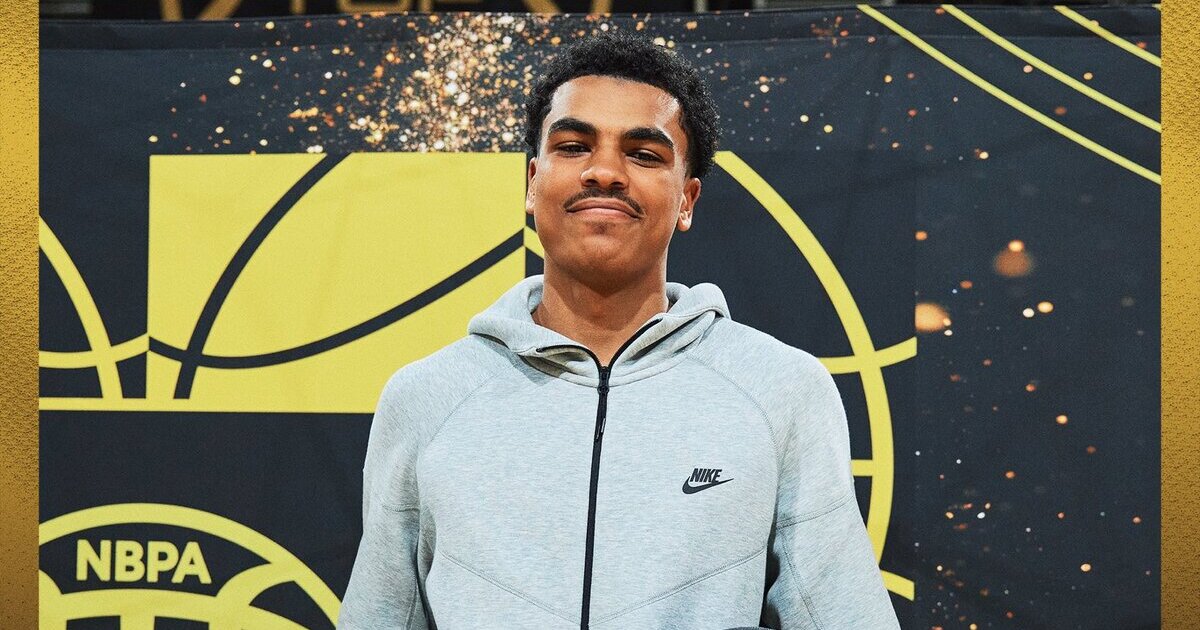
There are plenty of reasons to be nostalgic for the good old days of 2024. But for the Grammy Awards, there’s been one especially big change.
Last year was full-on Superstar Season: There were new albums from Taylor Swift, Beyoncé and Billie Eilish; the explosion of breakout sensations Chappell Roan and Sabrina Carpenter; a genuine cultural phenomenon with Kendrick Lamar’s “Not Like Us.” Five years after expanding the nominations in the Big Four categories from five to eight, the lists were bursting at the seams.
This year, not as much. Some big guns were still here, but the results often underdelivered. The lack of any equivalent to the Taylor-versus-Bey showdown was only amplified when the biggest seller (and, in his own odd way, biggest story) of 2025, Morgan Wallen, decided he would not be submitting his music for Grammy consideration.
This decrease in firepower, though, does open the possibility for some historically significant winners. Lamar’s GNX (a late 2024 release) isn’t his most ambitious project — see his previous album of the year nods for To Pimp a Butterfly or Mr. Morale & the Big Steppers — but it was well received both commercially and critically and is more accessible than those bigger conceptual swings. With 57 nominations and 22 trophies over the years, is it finally time for Lamar to take home the big prize?
If GNX were to win album of the year, it would be, astonishingly, the first hip-hop project to carry the category in more than 20 years, since OutKast won for Speakerboxxx/The Love Below in 2004. (Tyler, the Creator’s experimental, personal Chromakopia feels like the genre’s other contender for a nomination.) In addition, K.Dot’s “Luther” duet with SZA spent 13 weeks at No. 1 and is an easy bet for record and song of the year nominations.
The other groundbreaking option this year would be honoring Bad Bunny’s Debí Tirar Más Fotos as album of the year. His 2022 Un Verano Sin Ti is the only Spanish-language album to ever receive a nomination in the category, and a win would be a massive step in the recognition of Latin pop’s ongoing ascension. Debí Tirar Más Fotos is both a commercial smash and among the most critically regarded albums of Bad Bunny’s career. If he can’t win here, could a Latin album ever come away with the top prize?
So there are ways for this year’s ceremonies to salvage a weaker field and make a strong statement — but there’s always the fear that Grammys gonna Grammy. Coldplay only seem to become more polarizing as the years go by, but Moon Music was their fastest-selling album in more than 15 years. Brandi Carlile and Elton John’s Who Believes in Angels? is the kind of cross-generational effort that would seem to hit a Grammy sweet spot, though it may not have reached the heights that would take it over the finish line.
The other biggest name releases this year — from folks who have been nominated and even won album of the year — weren’t disappointing, but they didn’t ultimately feel like culture-setting moments on their own. The Grammys have never just been a charts game, though strong sales certainly don’t hurt.
Lady Gaga’s Mayhem and The Weeknd’s Hurry Up Tomorrow were heavily hyped No. 1 albums that set up blockbuster tours but lacked much commercial staying power on the charts. (It’s ironic that The Weeknd’s first album after protesting and then making peace with the Grammys may not be a major player.) Lorde’s Virgin had its fervent supporters even if it didn’t seem to fully register, debuting at No. 2 this summer and swiftly dropping down the charts afterward.
On the more purely pop side, Man’s Best Friend by Sabrina Carpenter (the only member of the class of 2024 to return with a new LP this go-round) and Justin Bieber’s Swag seem poised for album of the year nods. Her “Manchild” and his “Daisies” are also contenders in the record and song of the year categories.
And as an overall-good-vibes album of the year possibility, though Jelly Roll’s Beautifully Broken was shut out of the CMA nominations (following an entertainer of the year nod last year), the dude has been so omnipresent — collaborating with Snoop Dogg, Marshmello and Brandon Lake; showing up everywhere from Tulsa King to the WWE — that the general Grammy voter may find him irresistible.
So, for better or worse, there are still plenty of big names to fill the nomination slots. But there will certainly be an opening for some critics’ favorites and worthy rising stars, across a wide range of genres, to get some Grammy love. Potential contenders include Bon Iver’s Sable, Fable, FKA Twigs’ Eusexua, Laufey’s A Matter of Time, Tyler Childers’ Snipe Hunter and Dijon’s Baby.
In the record and song of the year categories, several women familiar from recent best new artist contention are likely to return to the ballot. Last year’s winner, Roan, released “The Giver” and “The Subway” — again, neither of which were entirely the smashes that might have been anticipated but either of which could get a lock. Doechii’s “Denial Is a River” and 2024 contender Gracie Abrams’ “That’s So True” should also turn up.
As for newcomers, Alex Warren’s “Ordinary” spent 10 weeks at No. 1, and, especially in song of the year, those power ballads still count for something. Rosé (see cover story on page 40) had one of the biggest tracks of the year in “Apt.” with perennial Grammy favorite Bruno Mars, and the song surely will get a long look.
Ravyn Lenae’s “Love Me Not” will be one of those timing judgment calls for voters: It was released all the way back in May 2024 but was not submitted for last year’s awards, and it was such a slow build that it didn’t peak until going viral on TikTok later in the year. Meanwhile, Eilish, as always, has a shot with “Wildflowers.”
One of the more interesting genre competitions to watch — and territory that has been genuinely lacking in interest in recent years — will be the rock categories. Let’s recall that at last year’s ceremony, the prize for best rock performance went to The Beatles and best rock album to The Rolling Stones. But few of the leading lights in rock’s greatest generation put out new music this year, nor did any of the Gen X juggernauts — Foo Fighters, Pearl Jam, Green Day, Red Hot Chili Peppers — that have dominated the proceedings for a while.
Instead, we witnessed a resurgence in rock’s popularity in 2025, with Turnstile, Ghost and Sleep Token all racking up hit albums. Female-fronted acts including Wet Leg and Wolf Alice also released innovative records, and even the bands closer to “legacy” status with significant new music — The Cure, Deftones, the revamped Linkin Park — feel fresher than a simple return to the usual suspects.
Most intriguing is how these groups will be submitted among the rock, metal and alternative categories, distinctions that only get more confusing as time marches on.
Speaking of which, the big category shake-up this year is the introduction of best traditional country album, which is alternately being seen as a reaction to Beyoncé’s best country album victory last year or simply catching up to similar subdivisions in R&B and other genres (more on page 34).
Clearly, country music has expanded to the point where Cody Johnson, Zach Top and The Red Clay Strays coexist alongside Bailey Zimmerman or Shaboozey. But if we’re making a distinction, how “traditional” are the new boundary markers? What’s the minimum required pedal steel and twang? Chris Stapleton is pretty damn old school and also as big a star as the genre has, and you could say the same about Luke Combs or even Megan Moroney. And at what point does traditional country cross over into the Americana category — where will 27-time Grammy winner Alison Krauss find Arcadia, her excellent reunion with Union Station, turning up?
Genres and definitions are ever-evolving, and it’s healthy for the Grammys to take chances even when it’s unclear where they might lead. Let’s hope that in a year light on megastars and drama, there’s greater opportunity for deserving surprises and overdue honors — secure in the knowledge that Swift’s The Life of a Showgirl is already teed up for next year’s awards.
***
Read more from THR’s Music Issue



